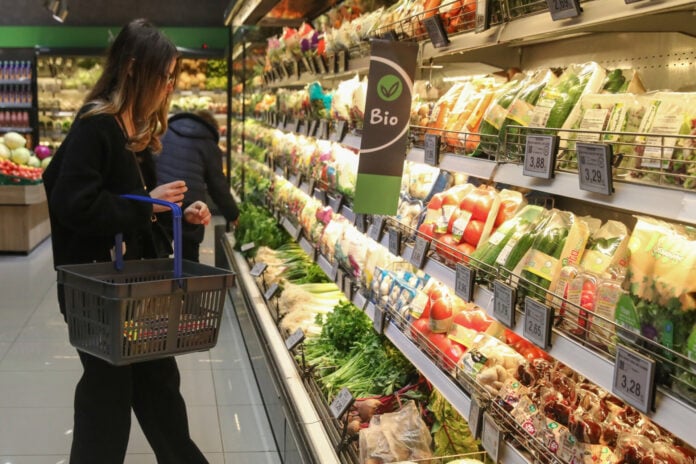The latest data on the duration and intensity of food inflation are sending mixed signals, since on one hand price increases of imported food seem to recede, but on the other hand prices of domestic agricultural products continue to soar.
According to the data of the Hellenic Statistical Authority (ELSTAT), the wholesale price index of imported goods dropped 14.4% in July 2023 compared to July 2022 and recorded an increase of 4.8% compared to June 2023.
The August 2022-July 2023 average general index showed a decrease of 0.6% compared to an increase of 30.1% in the same period the previous year.
However, the price index for imported food recorded an increase of 3.3%, slowing from the previous months when it was running at a double-digit rate.
Moreover, the general price index of imported goods fell due to the de-escalation of petroleum prices by 30%.
Prices soaring
Increases in olive oil and fruit prices led producer prices higher in July, while production costs fell. Had it not been for the devastating floods in Thessaly, this trend could have signaled a potential correction in high food inflation.
According to the data of the Hellenic Statistical Authority, producer prices rose 28.7% in July this year compared to last year, which was attributed to the increase in fruits and olive oil, where an increase of 60% and 92.1% was recorded respectively, as well as a 13% increase in the livestock price index.
Stabilization
According to representatives from the agricultural sector, in July and August – beyond the olive oil sector – producer prices were either at stable levels or showed small decreases. The developments in Thessaly, however, totally changed the situation in the primary sector, with the losses in plant and animal capital and the uncertainty over the restoration of the damage affecting the wider agricultural sector. Shortages in basic raw materials will once again shoot up production costs, while in general the decline of all production in basic fruit and vegetables, grains, pulses will inevitably lead to new price increases.
Regarding olive oil, the beginning of the new olive growing season in October – which is expected to bring reduced production – is expected to keep prices high, unless there is a sharp decline in demand from foreign markets which, at the mercy of inflation, will choose either cheaper options from third countries or significantly limit the quantities they will import.















